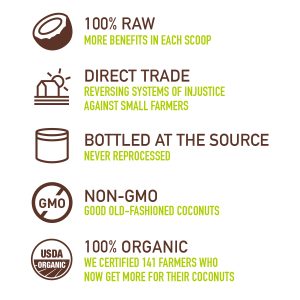In recent years, the concept of green eating has gained momentum as individuals become more conscious of the interconnectedness between their dietary choices and the environment. Adopting a green eating lifestyle goes beyond personal health benefits; it is a powerful tool for positive environmental change. This article explores the ways in which a green eating lifestyle can contribute to a healthier planet.
1. Sustainable Agriculture Practices
One of the fundamental ways green eating positively impacts the environment is through the support of sustainable agriculture practices. Choosing locally grown and organic produce promotes farming methods that prioritize soil health, biodiversity, and water conservation. By opting for foods cultivated in eco-friendly ways, individuals contribute to the preservation of natural ecosystems and reduce the environmental impact of conventional farming practices.
2. Reduced Carbon Footprint
The carbon footprint associated with food production and transportation is a significant contributor to climate change. Green eating involves choosing foods that are in-season and locally sourced, minimizing the distance traveled from farm to plate. This reduction in transportation helps lower carbon emissions, promoting a more sustainable and eco-friendly food supply chain.
3. Minimization of Food Waste
Green eating encourages a mindful approach to consumption, including efforts to minimize food waste. By making conscious choices about portion sizes, storing food properly, and creatively using leftovers, individuals contribute to reducing the vast amount of food that ends up in landfills. This not only conserves resources but also mitigates the greenhouse gas emissions associated with decomposing organic waste.
4. Preservation of Water Resources
Water scarcity is a growing global concern, and the agricultural sector is a significant consumer of water resources. Green eating involves selecting foods that are less water-intensive to produce, such as plant-based options. By embracing a diet rich in fruits, vegetables, and grains, individuals play a role in conserving water and supporting sustainable water management practices.
5. Biodiversity Conservation
The cultivation of monocrops and industrial-scale farming can lead to biodiversity loss and the depletion of essential pollinators. Green eating promotes biodiversity by favoring a variety of plant-based foods. By diversifying our diets, we support the preservation of ecosystems and contribute to the health of the planet’s flora and fauna.
6. Elimination of Harmful Chemicals
Conventional farming often involves the use of pesticides, herbicides, and synthetic fertilizers, which can have detrimental effects on the environment and human health. Green eating involves choosing foods produced without or with minimal use of harmful chemicals. This shift not only protects ecosystems but also contributes to the overall well-being of the planet.
7. Support for Local Economies
Choosing locally produced foods supports local farmers and reduces the environmental impact associated with long-distance transportation. Green eating fosters a connection between consumers and local food systems, promoting sustainability at both the individual and community levels.
8. Energy Conservation
The energy required for food production, processing, and transportation contributes significantly to carbon emissions. Green eating involves opting for minimally processed, whole foods that require less energy-intensive production methods. By choosing energy-efficient food options, individuals play a role in reducing the environmental strain associated with the food industry.
9. Mitigation of Deforestation
The expansion of agricultural land often leads to deforestation, contributing to the loss of vital ecosystems and biodiversity. Green eating involves making choices that mitigate the demand for deforested land, such as opting for plant-based alternatives over products associated with large-scale animal agriculture.
10. Advocacy for Sustainable Policies
Beyond individual choices, green eating empowers individuals to advocate for and support policies that promote sustainable and environmentally friendly agricultural practices. By aligning dietary choices with a commitment to a healthier planet, individuals become active participants in the global movement towards a more sustainable and resilient food system.
In conclusion, adopting a green eating lifestyle is not only beneficial for personal health but also holds the key to addressing pressing environmental challenges. From supporting sustainable agriculture to reducing carbon emissions and promoting biodiversity, the impact of green eating extends far beyond the dinner plate. As individuals make informed choices about the food they consume, they contribute to a collective effort to create a more sustainable and ecologically balanced world.
















